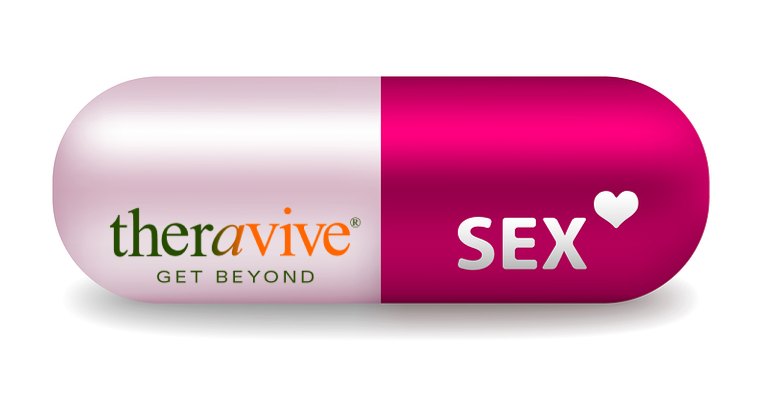 In August 2015 the Food and Drug Administration approved the first pill designed to treat lowered sexual desire in women. Depending on who is speaking, this decision is either revolutionary, a breakthrough to marvel at and sign of progress because it promotes the viewpoint that low sexual desire is a biological reality versus something existing solely in a woman’s head. Or it’s a mistake caused by the F.D.A collapsing from the pressure created by various lobby groups and a sad reflection of society’s penchant of viewing the aging process as something that needs to be fixed rather than accepted.
In August 2015 the Food and Drug Administration approved the first pill designed to treat lowered sexual desire in women. Depending on who is speaking, this decision is either revolutionary, a breakthrough to marvel at and sign of progress because it promotes the viewpoint that low sexual desire is a biological reality versus something existing solely in a woman’s head. Or it’s a mistake caused by the F.D.A collapsing from the pressure created by various lobby groups and a sad reflection of society’s penchant of viewing the aging process as something that needs to be fixed rather than accepted.
Known as Addyi (pronounced ADD-ee), or the little pink Viagra pill, the drug will be available October 17th by Sprout Pharmaceuticals. However its comparison to Viagra is a faulty one. Whereas drugs such as Viagra or Cialis work to increase blood flow to the genitals and thereby help men sustain longer erections, Addyi works to improve sexual desire via a change in serotonin and dopamine receptors located in the central nervous system, a biological mechanism very similar to the medical treatment of depression.
Addyi Isn’t New
In fact, Addyi was once tested as a treatment for depression but failed during depression trials. It was during these trials showing Addyi to be a failure in treating depression, however, that improvement was noted in sexual desire.
This is also not the first time that that Addyi has gone before the F.D.A as a treatment for low sexual desire. In 2010 and 2013 the drug failed to achieve approval due to marginal effectiveness and side effects. According to the Andrew Pollack of New York Times, “In one trial, for instance, women who took the drug had an average of 4.4 ‘satisfying sexual experiences’ a month, compared with 3.7 for women getting a placebo and 2.7 before the study began. The drug did not increase desire more than a placebo when measured by a daily diary, but did so modestly when measured by a monthly questionnaire.” (Pollack, 2015, p 28)
It was after these first two failures to approve Addyi for the treatment of low sexual desire that various women’s groups and health groups complained that not enough was being done to improve women’s sexual health and that more attention was being given to improve men’s sexuality than women’s; thus a coalition known as Even the Score was formed.
Most recently Sprout Pharmaceuticals tested the drug a third time for safety and effectiveness, utilizing 3 randomized double-blind trials with more than 11,000 women. The results were not much better than those found in 2010 and 2013, showing that women who took Addyi achieved between one-half to one more satisfying sexual event per month on average than women who took the placebo. However, this time Addyi won F.D.A approval. This caused some experts in the medical field to wonder if the sudden switch to approval was due to a campaign of pressure from groups like Even the Score.
Pros and Cons
On the other hand, people such as Sheryl Kingsberg, chief of behavioral medicine at MacDonald Women’s Hospital and a reproductive biology professor at Case Western Reserve University School of Medicine, see positives in the F.D.A. decision. “The Approval of Addyi is the most important advancement in female sexual health since the Pill was approved in 1960. It validates women’s right to treatment for sexual problems and their right to sexual health. It validates that there is as much biology as psychology with regard to women’s sexual function and this is the same for men. (Almendrala, 2015, p 3)
Other physicians such as Dr. Tami Rowan, an OB/GYM physician at the University of California, San Francisco Medical Center, find value in the F.D.A’s recent decision despite less than stellar findings. “Many people have said that the improvement wasn’t enough, but this is a very subjective statement. For many women, even one or two more satisfying sexual events can be very significant to a woman and her relationship.” (Almendrala, 2015, p16)
Side effects from Addyi remain the same as in previous trials. The most common ones are dizziness, sleepiness, nausea and fatigue. Again, some experts claim these side effects are not reason enough to block the use of Addyi as many drugs already approved by the F.D.A to treat other medical conditions have similar side effects.
Some side effects are more serious however, necessitating a boxed warning on Addyi’s label. People should not drink while taking the drug as its interaction with alcohol can cause extremely low blood pressure and thus bring about fainting. Since Addyi must be taken daily to see benefits — unlike Viagra or Cialis — some medical experts are troubled, surmising that many individuals will be hard pressed to remain abstinent while taking Addyi.
Beyond side effects and lack of strong findings of effectiveness, other medical experts weigh in via a more philosophical perspective. Dr. Rose Kumar, author on midlife and menopausal health as well as founder and medical director of The Ommani Center for Integrative Medicine, sees the advent of Addyi more symptomatic of our society’s maturity level, which she rates collectively as “adolescent”. According to Kumar, our society is addicted to a fast-paced tempo and thus we are driven to support anything purporting to forestall the aging process. She writes, “Because our society has glorified youth and the sex act in favor of aging and intimacy, as we age, society expects us to perform both physically and sexually similar to when we were young but with limited success. Our aging bodies have different needs: the need for a pure diet, exercise, work/life balance, attention to inner process and a search for meaning. The spiritual aspects of ourselves call to us more powerfully and with greater zeal as we age. This level of self-awareness needs to be paramount as we age if we desire to achieve a state of true health, which should no longer be defined by a ‘hard body’ or a ‘boundless sex life’.” (Kumar, 2015, p 6)
Rules of the Roll Out
No matter which side of the fence individuals stand in regards to F.D.A’s approval, certain facts remain:
1) Starting October 17th, Addyi can be prescribed or dispensed only by doctors and pharmacists after they watch an online slide presentation and pass a test of comprehension.
2) According to the F.D.A, the drug should be used by women whose lack of sexual desire is causing significant distress or interpersonal difficulty rather than a lack of desire due to illness or side effects from other medications ore relationship troubles.
3) To reduce concerns about the drug’s overuse, Sprout Pharmaceuticals has agreed to not advertise the product on television or radio throughout the next 18 months.
It is also uncertain if insurance will cover the cost. If the drug is indeed covered by insurance, it is unclear by how much. It’s presumed that Addyi’s cost will be similar to that of Viagra’s. Ten Viagra tablets cost $400.00, which is about a month’s worth for most men. However, since Addyi needs to be taken daily, the cost of a month’s supply will most likely look very different for women who are interested.
References
Pollack, Andrew (2015) F.D.A. Approves Addyi, A Libido Pill for Women Retrieved http://www.nytimes.com/2015/08/19/business/fda-approval-addyi
Almendrala, Ann (2015) Doctors Weigh in on Addyi, The New Women’s Libido Pill Retrieved http://www/huffingtonpost.com/entry/doctors-on-womens-libido-pill-addyi
Kumar, Rose (2015) A Pill for Libido. Really? Retrieved from http://www.huffingtonpost.com/rose-kumar-md/a-pill-for-libido
About the Author

Alicia Meade
, MA, LCSWI've helped individuals find solutions to their problems for over 30 years and am skilled in working with children, adolescents and families. I have worked in many different systems throughout the years: mental health centers, inpatient hospital settings, alternative schools, the legal system and managed care. As a therapist I am solution-focused and use aspects of cognitive behavioral therapy (CBT) and dialectical behavioral therapy (DBT). My approach is interactive and nonjudgmental.
Office Location:
1010 Lake St, Suite 620
Oak Park, Illinois
60302
United States
Phone: 630-747-1312
Contact Alicia Meade
Professional Website:
www.aliciameade.com